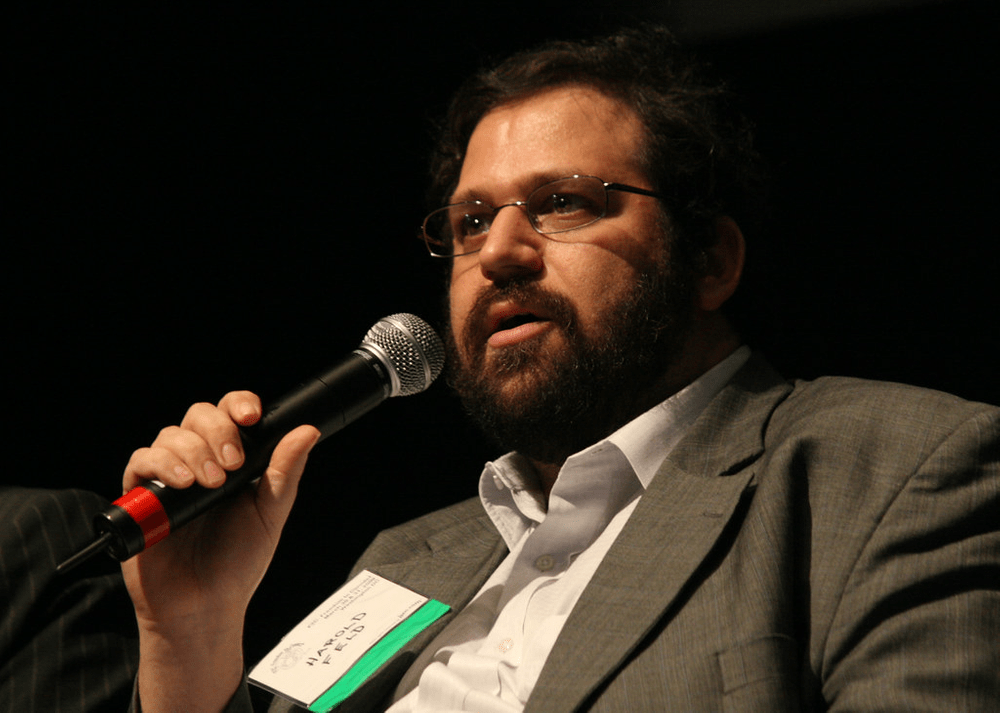Strategies For a Deadlocked FCC, the FCC’s Big RDOF Mistake, Smart Cities Leaders Awarded
Harold Feld, senior vice president of Public Knowledge, called for Democratic members of the Federal Communications Commission to fight Republican fire with fire in a recent publication, in which he lists all the tools Democrats have at their disposal to take equally audacious political actions, and
Jericho Casper

Harold Feld, senior vice president of Public Knowledge, called for Democratic members of the Federal Communications Commission to fight Republican fire with fire in a recent publication, in which he lists all the tools Democrats have at their disposal to take equally audacious political actions, and urges them to do so, even if it means risking the state of the economy.
In the article, Feld claims that lobbying from broadband giants led Senate Majority Leader Mitch McConnell, R-Kentucky, to confirm Republican commissioner Nathan Simington to the FCC Tuesday evening, in a move that will likely deadlock the Biden FCC for some time, as McConnell holds the potential to block the confirmation of any third Democratic nominee, which President-elect Joe Biden may propose.
Feld believes stopping the Biden FCC from restoring the Obama-era legal framework for broadband is the main goal driving McConnell’s unprecedented obstructionism.
Feld writes that the deadlock creates the incentive for the incoming Democratic FCC Chair to use his or her authority over the agency’s bureaus to pressure anyone standing in the way of a full commission.
If necessary, Feld urges the Democratic FCC Chair to effectively shut down the agency until Republicans approve a third Democratic commissioner.
“The FCC Chair could essentially put the FCC ‘on strike,’ cancelling upcoming spectrum auctions and suspending consumer electronics certifications,” writes Feld. Such actions would have wide repercussions for the wireless, electronics, and retail industries. “While this sounds like an industry dream, this would quickly devolve into an industry nightmare as the necessary work of the FCC grinds to a halt.”
Rather than an industry-friendly ‘consensus agenda,’ Senator McConnell and his Wall Street allies are setting the stage for a war of total destruction, writes Feld. “Wise investors should sell now and wait for the dust to clear — if it ever does.”
The FCC ‘drops the ball’ by allowing WISPs to bid in the gigabit-tier, says Doug Dawson
The FCC announced the auction winners of Phase I of the Rural Digital Opportunity Fund, a fund aimed at injecting billions of dollars in federal funding to support the construction of rural broadband networks, on Monday. The FCC’s press release boosts that an overwhelming majority of locations being served as a result of the auction, over 85 percent, will be receiving gigabit-speed broadband.
Yet, according to Doug Dawson, president of CCG Consulting, the speeds the FCC is promising are misleading, as the agency allowed fixed wireless technology to bid as a gigabit technology.
“This is such an easily disprovable concept that it would be laughable if the FCC hadn’t just awarded billions of dollars to an imaginary gigabit wireless technology,” writes Dawson.
By allowing wireless internet service providers to claim gigabit capabilities, the FCC cheated huge numbers of people out of getting fiber. “There were numerous electric cooperatives, small telcos, competitive local exchange carriers, fiber overbuilders, and public-private partnerships in the auction hoping to bring fiber to entire rural counties,” Dawson said. “In looking at the footprints won due to this fiction, I’m guessing the FCC’s decision to allow fixed wireless to falsely bid as gigabit technology killed fiber construction to at least a few hundred rural counties.”
“My Twitter feed is full of self-congratulations from FCC and other federal officials about the success of the recently completed RDOF grant. But I look at the results and I just see another big FCC failure,” writes Dawson. “I see a grant where billions of federal dollars were misallocated due to another giant gaffe by the FCC.”
Smart Cities leaders announced in Australia and New Zealand
The third annual Smart Cities Awards were presented Thursday in a virtual format by the Smart Cities Council of Australia and New Zealand. Nineteen winners were acknowledged across seven categories for their visionary leadership, best practice projects and real-world impact.
Smart cities leaders of Australia and New Zealand have accelerated their efforts throughout 2020, with new technology solutions, data leadership approaches and innovative projects tackling the most challenging economic, social and environmental issues head on.
“This year’s winners have played key roles in the national advancement of smart cities across Australia and New Zealand, while also leading a digitally-enabled and data-driven recovery from COVID-19,” said Adam Beck, executive director of the Smart Cities Council. “Together, our winners demonstrate the central role of smart cities in enhancing services for communities, building prosperity and enhancing resilience.”
We are delighted to introduce the 2020 Smart Cities awardees: the city of Darwin, the city of Adelaide, the North Sydney Council, the Moreton Bay Regional Council, the city of Greater Geelong, the Lake Macquarie City Council, the city of Canning, the Christchurch City Council, the city of Casey, the Newcastle City Council, Meshed IoT, the city of Canterbury Bankstown, the city of Melville, and the city of Parramatta.
Those who were presented with Smart Cities Leader awards, include Nicole Stephensen, with Ground Up Consulting, Mayor Teresa Harding, of the city of Ipswich, Claire Chaikin-Bryan, with the Lake Macquarie City Council, and Sean Audain, with the Wellington City Council.









Member discussion